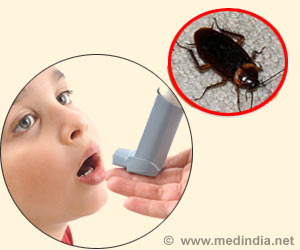Babies born to mothers with asthma are at an increased risk of developing asthma, especially baby boys are more at risk than girls.
Highlights
- Pregnant women with asthma can pass on the risk to their babies after delivery
- Gut mibcrobes are less abundant at 3–4 months in male babies than in female babies causing asthma
- Altering the gut microbes can help prevent asthma in boy babies
The research team has found that Caucasian baby boys who were born to pregnant mothers who have asthma were at an increased risk of developing asthma early.
One-third of the infants were likely to have specific gut microbiomes with particular characteristics as early as three to four months of age.
Link between Gut Microbiomes and Asthma
"We saw a significant reduction in the family of microbes called Lactobacillus in Caucasian baby boys born to pregnant women who had asthma, and this was especially evident if the asthmatic mother had allergies or was overweight," said Kozyrskyj, senior author of the study and who is one of the world's leading researchers on the gut microbiome.
These are the very first findings, which reveal that maternal asthma during pregnancy could be linked to changes in an infant's gut microbes, says Kozyrskyj.
Findings of the Study
In this study, more than 1,000 mothers and their infants were involved in AllerGen's CHILD Study, a national population-based birth cohort.
Kozyrskyj and her research team were motivated to study the link between the gut microbiome and asthma, especially about maternal asthma that affects the birth weight of the infant in a sex-specific manner.
The research team was already aware of the sex-based differences, as Caucasian male fetuses are more likely to have a lower birth weight when mothers have asthma, and the team has decided to study further.
The study also found that maternal asthma had an impact on the gut bacterial profile of baby girls but in a different way.
Kozyrskyj said, "Baby girls were more likely to have higher amounts of bacteria in the Bacteroidaceae family, which are important for maintaining the mucous barrier that protects gut cells from damage by harmful substances."
The research team suspects that this could protect baby girls from developing asthma in early in life.
When the gender switch in asthma occurs, the risk of developing asthma can increase in baby girls during puberty due to changes in the bacterial composition.
The research team is excited about these results, where a link has been found between gut microbiome to asthma and allergies. This is a new finding which could further contribute to the prevention of childhood asthma.
The study was funded by CIHR and AllerGen, and the findings were published in European Respiratory Journal.
Asthma During Pregnancy
Asthma is an inflammatory lung disease characterized by narrowing of the airways. Asthma may not aggravate during pregnancy, as some women may experience an improvement in the symptoms and few others may experience no change in symptoms.
About 8 percent pregnant women have asthma during pregnancy and need proper medication to avoid delivery complications and retarded fetal growth.
Specific factors such as estrogen or progesterone mediated bronchodilation may improve the symptoms of asthma during pregnancy. The signs are likely to worsen with increased stress, gastroesophageal reflux and increased the occurrence of bacterial respiratory tract infection.
Asthma symptoms tend to increase during the sixth month of pregnancy. However, the exacerbations tend to decrease during the final month of gestation.
Reference
-
Pregnancy and Asthma - (http://acaai.org/asthma/who-has-asthma/pregnancy)
Source-Medindia















